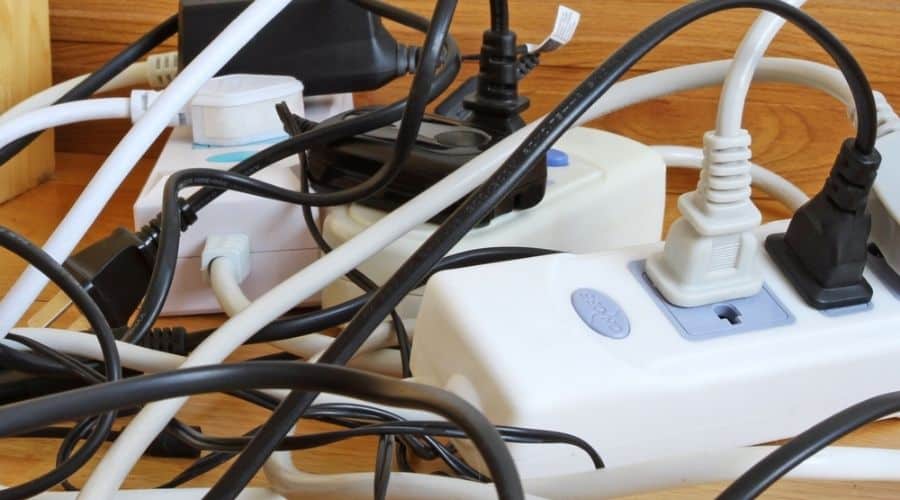When it comes to setting up your home appliances, particularly in the kitchen, safety is paramount. One common question that pops up for homeowners and renters alike is whether it’s safe to plug a freezer into an extension cord. In this article from TheKitchenApplianceDad.com, we’ll delve into the safety considerations, guidelines, and best practices for using extension cords with freezers.
Understanding the Basics: Electrical Safety and Appliances
Before we jump into the specifics about freezers and extension cords, it’s crucial to understand some basic concepts about electrical safety and appliances. Each appliance, including your freezer, has specific power requirements, which are measured in watts or amps. These requirements are designed to ensure that the appliance operates safely and efficiently without overloading electrical systems.
Why Use an Extension Cord?
Sometimes, the layout of your home or the placement of your electrical outlets may not be convenient. In such cases, using an extension cord might seem like an easy solution to power your freezer. However, this comes with several risks and considerations.

The Risks of Using an Extension Cord with a Freezer
Power Overload and Fire Hazard
The primary concern with using an extension cord to power a freezer is the risk of power overload. Freezers, particularly large ones, draw a significant amount of electricity. An inadequate extension cord can overheat if it’s not meant to handle such a load, potentially leading to a fire hazard.
Voltage Drop and Inefficiency
Another issue is the voltage drop that can occur when using an extension cord, especially if it is too long or not sufficiently thick. A voltage drop can cause your freezer to work harder than it needs to, which can increase your energy bills and reduce the efficiency and lifespan of the appliance.
Cord Damage and Electrical Safety
Extension cords are more prone to damage than permanent wiring. A damaged cord can expose wires, leading to further risks like electric shocks or shorts, which can damage your freezer or worse, cause injuries.
Best Practices for Using Extension Cords with Freezers
If you find it absolutely necessary to use an extension cord for your freezer, follow these best practices to minimize risks:
Choose the Right Cord
- Check the Amperage: Ensure the extension cord can handle the amperage of your freezer. This information can be found in the freezer’s manual or on its information plate.
- Opt for a Short, Heavy-duty Cord: A short cord reduces the risk of voltage drops and power loss. A heavy-duty cord (typically 14 or 12 gauge) is advisable for such high-power appliances. Here’s a guide from the Electrical Safety Foundation International on choosing the right power cord.
Safety Certifications
- Look for Certifications: Use cords that have been certified by recognized testing laboratories like Underwriters Laboratories (UL). These cords meet specific safety standards that can handle higher electrical loads.
Inspect the Cord Regularly
- Regular Checks: Regularly inspect the cord for any signs of wear, tear, or damage. If you notice any exposed wires or feel the cord heating up during use, stop using it immediately and replace it.
Avoid Daisy-Chaining
- Direct Connection: Never plug an extension cord into another extension cord (known as daisy-chaining) to reach further distances. This significantly increases the risk of overloads and fire hazards.
Alternatives to Using an Extension Cord
Rearrange Your Space
- Consider rearranging your kitchen or garage layout so that your freezer can be plugged directly into a wall outlet. This is the safest method to power your freezer.
Install Additional Outlets
- If it’s not feasible to move your freezer, another safer alternative is to have a licensed electrician install additional outlets nearer to where you need them. This minimizes the risks associated with extension cords and ensures that your freezer operates efficiently.
Use a Power Strip with Overload Protection
- While not a recommended solution for long-term use, if you must use an intermediary device, choose a power strip with built-in overload protection. This can provide a safer connection point than a standard extension cord.
Key Takeaways
- Safety First: Directly plugging your freezer into a wall outlet is the safest option.
- Choose Wisely: If an extension cord is necessary, ensure it is short, heavy-duty, and appropriately rated for the freezer’s amperage.
- Regular Inspections: Regularly check the condition of the extension cord and replace it if damaged.
- Professional Help: Consider hiring a professional to install more outlets if needed.
By following these guidelines, you can ensure that your freezer operates safely and efficiently, without the risks associated with improper use of extension cords. Remember, when it comes to electrical safety, it’s always better to err on the side of caution. Happy freezing, andstay safe in the kitchen with TheKitchenApplianceDad.com!


